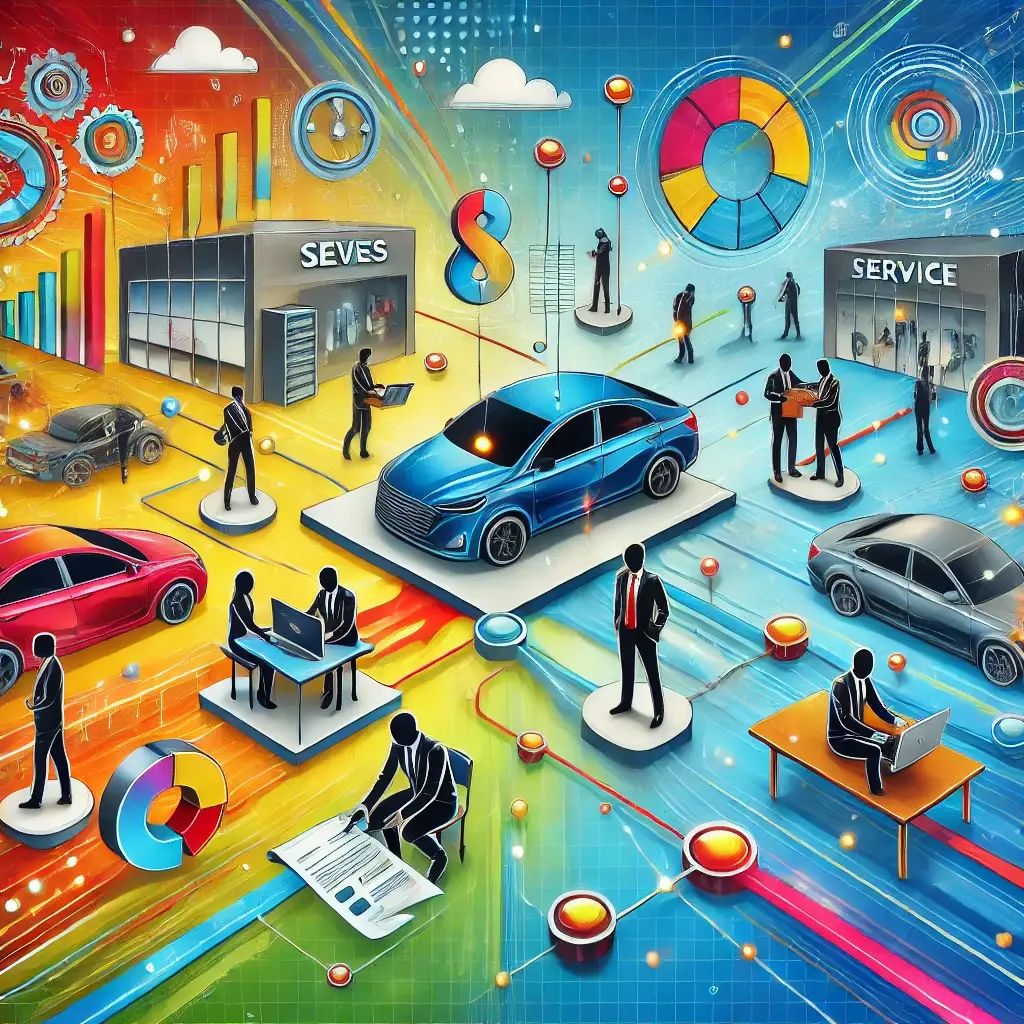In today’s data-driven world, the most successful automotive dealerships are those that can quickly and efficiently interpret the wealth of information generated across their operations. From sales reports and service records to financial data, dealerships handle an enormous amount of data every day. However, too often, this data remains siloed across different systems, making it difficult to see the bigger picture or gain actionable insights. This is where a custom data hub, like the Dealerbible Data Center, comes into play.
A centralized data hub is more than just a place to store data—it is the engine that powers dealership efficiency. By integrating data from sales, service, and finance departments, it can transform how you manage your dealership, streamline decision-making, and ultimately, drive profitability.
The Challenges of Data Fragmentation
One of the biggest obstacles dealerships face is fragmented data. Sales, service, and finance departments often operate on separate systems, creating silos of information. Without a unified system, dealership managers have to piece together data manually, which is time-consuming, inefficient, and prone to errors.
For example, the sales team might be using a Dealer Management System (DMS) to track new and used vehicle transactions, while the service department is using a different system to manage repairs and maintenance. Meanwhile, the accounting department is tracking dealership finances on yet another platform. These disparate systems create bottlenecks, making it difficult to obtain a holistic view of the dealership’s performance.
The Power of Centralized Data Integration
A custom data hub like Dealerbible’s Data Center solves this problem by consolidating all dealership data into one centralized platform. Whether it’s sales logs, service appointments, or financial reports, the data hub automatically ingests and processes information from multiple sources, eliminating the need for manual data collection.
With all your data in one place, you can quickly access a complete, real-time view of your dealership’s operations. For instance, imagine being able to cross-reference service department performance with sales data to better understand customer behavior. Or, instantly seeing how financial performance aligns with sales forecasts. This kind of data integration provides the insights necessary to make more informed, data-driven decisions.
Streamlined Decision-Making Across Departments
A key advantage of a centralized data hub is that it enables more streamlined decision-making. With real-time access to integrated data, dealership managers can easily identify trends, forecast outcomes, and allocate resources more effectively.
For instance, if your service department is consistently booking more appointments than available technicians can handle, you can use data insights to adjust staffing levels, optimize scheduling, or offer additional service slots to meet demand. Similarly, if sales numbers are lower than expected for a particular vehicle model, you can quickly assess the impact on your financials and adjust pricing strategies or marketing efforts accordingly.
With a custom data hub, these decisions no longer require hours of manual data analysis or gut instincts—they’re backed by precise, real-time data.
Driving Efficiency Through Automation
Automation is another critical element of a custom data hub. By automating data ingestion and reporting, your dealership can significantly reduce the time spent on manual tasks. For example, instead of manually pulling reports from multiple systems at the end of each month, the data hub can generate comprehensive, real-time reports at any time.
This automation not only saves time but also improves accuracy, ensuring that dealership managers have access to reliable data when making important decisions. Whether it’s tracking inventory levels, managing service capacity, or monitoring financial performance, automation frees up valuable resources and allows your team to focus on strategic initiatives rather than administrative tasks.
Enhanced Collaboration and Communication
A custom data hub also improves collaboration and communication across departments. When everyone in the dealership has access to the same real-time data, there’s no need for back-and-forth emails or meetings to align on the latest numbers.
For example, the sales team can instantly see which service customers are likely to be in the market for a new vehicle based on their service history, while the accounting team can monitor cash flow and profitability in real-time, without needing to wait for end-of-month reports. This transparency fosters a culture of collaboration, allowing each department to work together towards common goals.
The Bottom Line: Efficiency Equals Profitability
At the end of the day, increased efficiency leads to improved profitability. By integrating data across sales, service, and finance departments, a custom data hub enables your dealership to operate more smoothly, respond to market changes more quickly, and make decisions based on accurate, up-to-the-minute data.
Dealerbible’s Data Center is designed to be your dealership’s custom data hub, transforming fragmented data into a powerful, unified source of insight. With advanced automation, real-time analytics, and tailored reporting, you can unlock new levels of efficiency and drive profitability across every department of your dealership.







